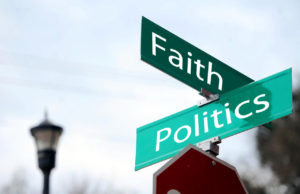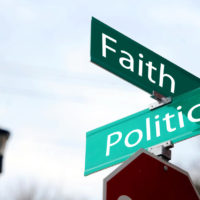Our Latest Perspectives
Staffing in a Part-Time World

One of the most striking changes I have seen In my consulting work since 2012 is in how often congregations hire part-time employees. For everything from cleaning and building maintenance, administration, finance, program staffing, and pastoral care, I see part-timers doing work previously done by full-time staff. Some regret this; I think we should embrace it.
Preaching Our Principles—Not Our Politics

In the most unorthodox political season since I started paying attention to politics 50 years ago, the polarized national environment has thoroughly invaded local congregations. Pastors, priests and rabbis report pressure from some congregants to “Speak to the issues!” and from others to “Stay away from politics!” Many congregational leaders worry about the nasty tone of the national discourse and feel compelled to call for civility. What should a congregational leader say or do amid such omnipresent political tensions?
A Time of Opportunity

In fifty years of ministry, I’ve never seen a time with more opportunities for congregations to make a difference through nonpartisan, high-impact mission efforts. As the US government downsizes, new opportunities will arise for ministry in healthcare, veteran care, environment-sustaining and protection work, support for the poor, and so much more.
Abiding in the Middle

Many faith traditions set aside times for turning inward, reflecting, and spiritual practice. Right now, many Christians are practicing Lent while many Muslims observe Ramadan. Honoring these special times with the support of a religious community reminds us of the regenerative, inward work we need to do to become more human and sustain ourselves as leaders, especially in times of transition.
What I Love About Interim Ministry

People have lots of questions about interim ministry—is it really necessary, how long should it last, what should the focus be? As an unintentional practitioner at both the judicatory and congregational levels (which means that I got coopted to do the work rather than seeking it out), I want to approach the subject differently: What do I love about an interim’s life?
Congregations’ Stances Toward Society

Is your congregation a fortress, a partner, a prophetic voice, or an enmeshed part of its community? How do its traditions, its membership, or political events shape its attitude toward the society around it? In a time when many people have strong feelings about changes in the wider society, they want to know and understand their congregation’s stance toward the wider culture.
When the Pastor Isn’t Trusted to Supervise

When boards and committees lose faith in the pastor’s supervisory ability, they often intervene in unhelpful ways. They forget or neglect their own oversight responsibility, which is the very thing that could make things right. Instead, they practice micromanagement, or they restrict the authority of the head of staff—practices which, in the end, harm the congregation.






